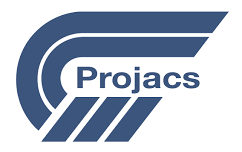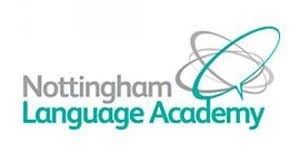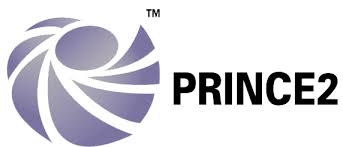
Strategic Planning and Balanced Scorecard
Course ID: 2509080101280EGI
Course Dates : 08/09/25 Course Duration : 5 Studying Day/s Course Location: London, UK
Language: Bilingual
Course Category: Professional and CPD Training Programs
Course Subcategories: Operations and Process Excellence
Course Certified By: * Projacs Academy
* Professional Training and CPD Programs
Certification Will Be Issued From :
KSA
Course Fees: £4,838.34
Vat Not Included in the price. VAT may vary depending on the country where the course or workshop is held.
Click to Pay
Date has passed please contact us Sales@e-s-hub.com
Course Information
Introduction
Strategic planning is the cornerstone of organizational success, enabling businesses to navigate complexity, anticipate challenges, and seize opportunities. In an era where market dynamics shift rapidly, organizations must align their objectives with actionable strategies that drive sustainable growth. The Balanced Scorecard (BSC), developed by Robert Kaplan and David Norton, has emerged as a transformative framework for translating strategic vision into measurable outcomes. This course bridges theory and practice, equipping participants with the tools to design, implement, and evaluate strategic plans using the BSC methodology.
The absence of a structured approach to strategic planning often results in misaligned priorities, inefficient resource allocation, and stagnation. Many organizations struggle to translate high-level goals into operational actions, leading to gaps between intention and execution. For instance, a global manufacturing firm might articulate a vision for innovation but fail to integrate this objective into its daily operations. Such disconnects highlight the need for frameworks like the BSC, which provide clarity and coherence across all levels of an organization.
Mastering strategic planning and the Balanced Scorecard offers significant benefits for both individuals and organizations. Professionals gain a competitive edge by demonstrating proficiency in aligning organizational goals with performance metrics. Organizations, on the other hand, can enhance decision-making, improve accountability, and foster a culture of continuous improvement. Consider the case of a healthcare provider that implemented the BSC to streamline patient care processes, resulting in reduced wait times and improved patient satisfaction scores.
The course draws on established theories such as Michael Porter’s value chain analysis and Peter Drucker’s management principles to provide a robust foundation for strategic thinking. Additionally, it incorporates insights from industry trends, including digital transformation and sustainability, to ensure relevance in contemporary contexts. Participants will explore how organizations like Amazon and Tesla have leveraged strategic alignment to achieve market dominance.
Real-world applications of the Balanced Scorecard underscore its versatility. A multinational corporation might use the framework to harmonize operations across geographies, while a nonprofit organization could employ it to measure social impact against funding objectives. These examples illustrate the adaptability of the BSC across industries, making it an indispensable tool for modern leaders.
Through this course, participants will not only gain theoretical knowledge but also develop practical skills to address real-world challenges. By engaging in interactive exercises, case studies, and simulations, they will learn to craft strategic plans that are both visionary and executable. The ultimate goal is to empower professionals to become catalysts for change within their organizations, driving innovation and excellence through strategic foresight.
Objectives
By attending this course, participants will be able to:
Analyze the key components of strategic planning and their interdependencies.
Design a Balanced Scorecard tailored to their organization’s unique needs and objectives.
Evaluate the effectiveness of existing strategic initiatives using performance metrics.
Implement strategies that align organizational goals with operational activities.
Apply advanced techniques for monitoring and adjusting strategic plans in response to changing environments.
Develop communication strategies to engage stakeholders in the strategic planning process.
Synthesize insights from industry trends and best practices to enhance strategic decision-making.
Who Should Attend?
This course is ideal for:
Senior executives and managers responsible for formulating and executing organizational strategies.
HR professionals tasked with aligning talent development with business objectives.
Consultants seeking to enhance their advisory capabilities in strategic planning.
Project managers aiming to integrate strategic goals into project deliverables.
Educators and trainers involved in developing leadership and management curricula.
These groups will find the course valuable as it addresses the critical need for strategic alignment and performance measurement in their respective roles. While prior exposure to strategic concepts is beneficial, the course is designed to accommodate intermediate learners who wish to deepen their expertise.
Training Method
• Pre-assessment
• Live group instruction
• Use of real-world examples, case studies and exercises
• Interactive participation and discussion
• Power point presentation, LCD and flip chart
• Group activities and tests
• Each participant receives a 7” Tablet containing a copy of the presentation, slides and handouts
• Post-assessment
Program Support
This program is supported by:
* Interactive discussions
* Role-play
* Case studies and highlight the techniques available to the participants.
Daily Agenda
The course agenda will be as follows:
• Technical Session 08.30-10.00 am
• Coffee Break 10.00-10.15 am
• Technical Session 10.15-12.15 noon
• Coffee Break 12.15-12.45 pm
• Technical Session 12.45-02.30 pm
• Course Ends 02.30 pm
Course Outlines
Foundations of Strategic Planning
Overview of strategic planning principles and frameworks.
Identifying organizational vision, mission, and core values.
Conducting SWOT analysis to assess internal and external factors.
Aligning strategic objectives with stakeholder expectations.
Day 2:
Introduction to the Balanced Scorecard
Historical evolution and key features of the Balanced Scorecard.
Mapping strategic objectives to financial, customer, internal process, and learning perspectives.
Developing key performance indicators (KPIs) for each perspective.
Case study: Successful implementation of the BSC in a service-based organization.
Day 3:
Designing and Implementing the Balanced Scorecard
Creating a strategy map to visualize cause-and-effect relationships.
Cascading the Balanced Scorecard across departments and teams.
Integrating the BSC with existing management systems.
Addressing common implementation challenges and solutions.
Day 4:
Monitoring and Evaluating Strategic Performance
Setting up dashboards and reporting mechanisms for continuous monitoring.
Using data analytics to track progress and identify areas for improvement.
Conducting periodic reviews to ensure alignment with strategic goals.
Simulation exercise: Adjusting strategies based on real-time feedback.
Day 5:
Advanced Applications and Future Trends
Leveraging technology to enhance strategic planning and execution.
Incorporating sustainability and ESG (Environmental, Social, Governance) considerations.
Exploring emerging trends in strategic management and the BSC.
Action planning: Developing a roadmap for post-course application.



















































